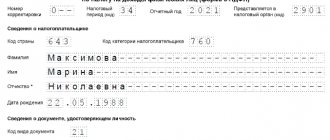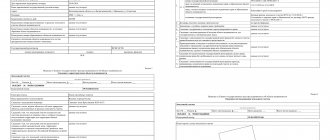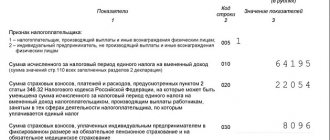When carrying out charitable activities, you can return up to 13% of the donation amount to your account. Let's look at the rules for receiving a deduction, tell you about the restrictions, order and size.
What kind of donation can you get a deduction for? Rules for calculating deductions Non-monetary charity and personal income tax When and for what period can you get a deduction Documents for deductions for charity Social tax deduction is a benefit provided by the state when the taxpayer performs any socially significant actions. Such actions also include charity.
If you donated money to a children's hospital, transferred funds to a charitable organization or animal welfare fund, you can officially return part of such expenses.
The conditions for receiving a deduction for charity are the same as for property, social and other deductions. First of all, you must be a personal income tax payer at a rate of 13%.
To do this, it is enough to have an official salary, from which your employer transfers 13% of income tax. Or have other income subject to personal income tax. This could be income from renting an apartment, car, garage, etc.
In addition, you must be a tax resident of the Russian Federation, that is, be in Russia for more than 183 days in 12 consecutive months.
When carrying out charitable activities, you can return up to 13% of the donation amount to your account. Despite the fact that the deduction for charity is a social deduction, the rules for calculating it have their own characteristics, and the maximum amount is not limited to 120 thousand rubles, such as benefits for treatment and education.
Charitable foundation: legal aspects
Charitable organization is a general concept for specially created associations engaged in charity. According to the Law “On Charitable Activities and Charitable Organizations” dated August 11, 1995 No. 135-FZ, charitable organizations must be non-profit, without the participation of the state or its subjects. They can be created in the form:
- public organizations (associations) - Art. 6 of the Law “On Non-Profit Organizations” dated January 12, 1996 No. 7-FZ;
- funds - art. 7 of Law No. 7-FZ;
- institutions (if the founder is a charitable organization) - Art. 9 of Law No. 7-FZ, etc.
Charitable organizations must maintain accounting and reporting in accordance with paragraph 1 of Art. 19 of Law No. 135-FZ. The annual report must be publicly available; it is also submitted to the body that made the decision on state registration of such an organization, and to the tax authority (clauses 2–3 of Article 19 of Law No. 135-FZ).
What is a charitable foundation (hereinafter - CF)? This is a non-profit organization (NPO), which can be established by citizens or legal entities through voluntary contributions for charitable purposes (Article 7 of Law No. 7-FZ). The CF is the owner of the property that was transferred to it as contributions by the founders. The goals of the charitable foundation must be stated in the charter. The Board of Trustees is the main body of the Charitable Foundation.
What taxes does the charity pay?
By default, all legal entities, including BFs, must apply the general taxation system, unless they have switched to a special regime. Accordingly, the taxation system of a charitable foundation determines which requirements of the Tax Code of the Russian Federation it must follow and what it is a taxpayer of.
The CF has the right to conduct business activities, for example, produce goods that meet the CF's goals, buy and sell securities, participate in business companies, etc. Profits go to the CF's goals and cannot be distributed among participants. Income and expenses for entrepreneurship are accounted for separately from income and expenses for statutory charitable activities.
If a charitable foundation (like other non-profit organizations) conducts only statutory activities and is not engaged in entrepreneurial activities, the obligation to submit accounting and tax reports is not removed from it. The Guide from ConsultantPlus will help you fill out the Report on the intended use of funds, which is prepared by charitable organizations. Get trial access to the legal system for free and proceed to the material.
What kind of donation can I get a deduction for?
Not every good deed qualifies for a tax break. Before you receive a tax deduction for charity , make sure that you have transferred money to an organization from the list:
- Charity organisations.
- Socially oriented non-profit organizations.
- Non-profit organizations operating in the field of science, culture, physical culture and sports (except for professional sports), education, enlightenment, healthcare, protection of human and civil rights and freedoms, social and legal support and protection of citizens, assistance in protecting citizens from emergency situations , environmental protection and animal welfare.
- Religious organizations for the implementation of statutory activities.
- Non-profit organizations for the formation or replenishment of target capital.
For example, in 2022 you donated money to a children's charity. In 2022, you can generate a 3-NDFL declaration, contact the Federal Tax Service and receive a tax deduction for charity.
For example, you sent money to a non-profit sports organization where your child practices rhythmic gymnastics. Next year you have the right to apply for a tax deduction for charitable expenses.
Charitable foundation and income tax
For the purposes of income tax (hereinafter referred to as NP) and tax according to the simplified tax system, the taxation of charitable contributions that go to the charitable foundation occurs in accordance with subparagraph. 14 clause 1 art. 251, paragraph 2 of Art. 251 and sub. 1 clause 1.1 art. 346.15 of the Tax Code of the Russian Federation: targeted financing and targeted revenues are not recognized as income. Targeted funds can be transferred from the budget, state, municipal institutions, extra-budgetary funds, individuals and legal entities, and from other sources listed in the Tax Code.
To answer the question in the negative whether charitable assistance received by a charitable foundation is taxable, the following conditions must be met:
- use of gratuitously received funds for their intended purpose and within the specified period;
- use of these funds to conduct activities in accordance with the charter or maintain the charitable foundation;
- maintaining separate records of income and related expenses within the framework of target revenues.
If any condition is not met, then such income is included in the tax base. It is important to specify in detail in the charter the goals of the charitable foundation, what activities it can conduct and what expenses it will incur.
ATTENTION! NP is paid only when running a business. However, if the BF is not engaged in business, then it must still submit zero declarations.
NP payers include all Russian organizations (clause 1 of Article 246 of the Tax Code of the Russian Federation), including non-profit organizations. And all taxpayers are required to submit declarations (clause 1 of Article 289 of the Tax Code of the Russian Federation). If the NPO does not pay the NP, then it has the right to submit a simplified form of declaration based on the results of the tax period (clause 2 of Article 289 of the Tax Code of the Russian Federation).
Deduction amount
The amount of tax deduction for charitable expenses is calculated for the calendar year and is determined by the following factors:
- You cannot get back more money than you transferred to the income tax budget (about 13% of the official payment).
- You can return up to 13% of expenses for charity, but the maximum amount of expenses that you can use for deduction is limited to 25% of your annual income (paragraph 7, paragraph 1, clause 1, article 219 of the Tax Code of the Russian Federation). Accordingly, the maximum refund amount is: (13% x 25% x your annual income).
- The limit of 25% of income received does not apply to each type of expenditure on charity and donations, but to all in total for the year.
Example: In 2022 Zhdanov G.I. donated 30 thousand rubles to the children's city hospital, while his taxable income for the year will be 200 thousand rubles. Since the donation amount does not exceed 25% of the income of G.I. Zhdanov. (30,000 < 200,000 x 25%), then he has the right to claim a deduction in the amount of the donation. In 2022 Zhdanov G.I. can submit a declaration to the tax authority and return 30,000 x 13% = 3,900 rubles.
Example: In 2022 Klimova L.D. donated money to the charity organization “Svet” in the amount of 70,000 rubles. Taxable income of Klimova L.D. for the year will be 250,000 rubles. Since the donation amount exceeds 25% of the annual income of L.D. Klimova. (70,000 rubles > 250,000 x 25%), then she can only claim a deduction in the amount of 250,000 x 25% = 62,500 rubles. In 2021, Klimova has the right to submit a declaration to the tax office and return 62,500 x 13% = 8,125 rubles.
Example: In 2022 Somov I.F. donated 50,000 rubles to a non-profit organization for the protection of nature. and 80,000 rub. for the benefit of a charitable organization. Annual taxable income of Somov I.F. for the year will be 360,000 rubles. The total amount of donations exceeds 25% of Somov I.F.’s income. per year (50,000 + 80,000 > 360,000 x 25%). Therefore, at the end of 2022, Somov I.F. will be able to claim a deduction of RUB 90,000. (360,000 x 25%) and return tax in the amount of 90,000 x 13% = 11,700 rubles.
Please note : if for some reason the donation for which the deduction was received is returned to you, you will be required to include the amount of the deduction in your tax return for the period when the refund was made (paragraph 8, clause 1, clause 1, article 219 of the Tax Code RF).
Example: In 2022 Burlakov V.F. donated 40,000 rubles to a religious organization. In 2022 Burlakov V.F. filed a return with the tax office and received a deduction for charity expenses in full (returned tax in the amount of 40,000 x 13% = 5,200 rubles). However, the donation was later returned in 2022. Burlakov V.F. at the end of 2022 (in 2021), he must submit a declaration to the tax office at the place of permanent registration and include the deduction amount of 40,000 rubles. to your income, and also return tax in the amount of 13% of the deduction amount (5,200 rubles).
Charitable fund and VAT
For VAT, taxpayers are any organizations (clause 1 of Article 143 of the Tax Code of the Russian Federation). The obligation to submit declarations lies with all taxpayers (clause 5 of Article 174 of the Tax Code of the Russian Federation), therefore zero declarations must be submitted even in the absence of taxable transactions.
Why are charitable activities not subject to VAT? If money is transferred free of charge as assistance, then an object of taxation for VAT does not arise according to Art. 146 of the Tax Code of the Russian Federation. If there is a transfer of goods or property rights, then subsection applies. 12 clause 3 art. 149 of the Tax Code of the Russian Federation, according to which such transactions (except for excisable goods) are not subject to VAT. To confirm such VAT-free transactions, you must:
- comply with the goals of the Charitable Foundation in accordance with the charter;
- have documents confirming the free transfer.
If the recipient of assistance is a legal entity, such documents may be an agreement with the recipient, acts of acceptance and transfer. For individuals, you need a document confirming that assistance has been received (letter of the Ministry of Finance of the Russian Federation dated October 26, 2011 No. 03-07-07/66).
CFs that carry out both taxable and non-VAT-taxable transactions are entrusted with the obligation to maintain separate accounting for them (clause 4 of Article 149 of the Tax Code of the Russian Federation), the rules of which are specified in the accounting policy. For purchases for charitable purposes, input VAT is taken into account in the purchase price and is not accepted for deduction (subclause 1, clause 2, article 170 of the Tax Code of the Russian Federation). For purchases for commercial purposes, VAT can be deducted, and sales will be subject to tax assessment.
According to paragraph 5 of Art. 149 of the Tax Code of the Russian Federation, when submitting a corresponding application to the tax authority, it is possible to refuse the VAT exemption for charitable transactions - then you can deduct the corresponding input VAT, which sometimes turns out to be more profitable.
Tax deduction for non-monetary charity
Charity is not only a donation of money, but also a gift of a thing or right for generally beneficial purposes.
Things are objects of civil rights, including:
- cash and certificated securities;
- property, including non-cash funds;
- uncertificated securities;
- property rights;
- results of work and provision of services;
- protected results of intellectual activity and equivalent to them
- means of individualization (intellectual property);
- intangible benefits.
This means that you can donate not only money, but also property to a charitable foundation or non-profit organization (see list of organizations above).
In addition, you can receive a tax deduction if you provided a gratuitous service or transferred property rights.
When submitting a 3-NDFL declaration for social tax deduction for charity, you must attach payment documents confirming the value of the donated property and the Transfer and Acceptance Certificate.
An example from the practice of tax experts of the online service NDFLka.ru
Oleg K. donated two pianos to the music school in 2022. The total cost of the property was 300 thousand rubles, which was confirmed by a receipt from the store and payment documents. At the same time, a Transfer and Acceptance Certificate was signed. The client asked whether he has the right to a tax deduction and when he can apply.
Experts carefully studied Oleg K.’s documents and came to the following conclusion. In 2022, he can claim his right and receive a tax deduction. To do this, you need to submit a package of documents to the tax office, including a 3-NDFL declaration, a Transfer and Acceptance Certificate, a receipt for the purchase of musical instruments and payment slips confirming payment.
If the donation amount does not exceed 25% of Oleg K.’s income for 2022, then he has the right to a tax deduction for charity for the amount of the donation. 39,000 rubles (13% x 300 thousand rubles) will be returned to the client’s account.
Charitable fund and payroll taxes
When paying income to individuals, it is necessary to remember personal income tax and social contributions. If there were no such payments, and employees work on a voluntary basis (clause 2 of Article 7.1 of Law No. 135-FZ), then the 2-NDFL certificate and the 6-NDFL calculation are not submitted, since the BF will not be considered a tax agent (clause 1 Article 226 of the Tax Code of the Russian Federation). When providing charitable assistance to individuals, for the purpose of exempting these payments from personal income tax, one must be guided by Art. 217 of the Tax Code of the Russian Federation: payments from charitable organizations are exempt from personal income tax (clause 8.2 of Article 217 of the Tax Code of the Russian Federation).
For insurance premiums, the payers are the policyholders who make payments to the insured persons. The charitable foundation reports to the tax authorities on these payments and contributions. If there are no payments, but there are insured persons (employees, individual contractors), a zero calculation is presented. This is what officials demand (letters from the Ministry of Finance dated March 24, 2017 No. 03-15-07/17273, Federal Tax Service dated April 12, 2017 No. BS-4-11 / [email protected] ). There is no need to submit a calculation only if there are no insured persons. But such a situation is difficult to imagine.
Read about filling out reports on insurance premiums in this article.
Tax deduction for treatment, education and charity
By paying for treatment, education or donating funds to charity, a working citizen can count on a social tax deduction, that is, get back part of the money spent. Tax expert Angelina Volkonskaya
told BUKH.1S, under what conditions a social deduction is due, what documents the taxpayer should prepare and how to return part of their expenses.
According to current legislation, social tax deduction
can be declared, in particular,
for expenses on training, treatment and charity
(subparagraphs 1, 2, 3, paragraph 1, article 219 of the Tax Code of the Russian Federation). The use of a social deduction entails a reduction in the tax base for personal income tax by the amount of expenses incurred by the citizen, as a result of which the amount of tax is also reduced.
You can apply for a deduction to the Federal Tax Service after the end of the year in which “social” expenses were incurred. Then the employee will be refunded part of the personal income tax that the employer withheld from his salary for the past year.
For some types of “social” expenses, a citizen can take advantage of deductions through his employer. In this case, the right to deduction will be exercised earlier, by receiving salary for a certain period of time without withholding personal income tax.
Deduction for training
By receiving, for example, higher education, including by correspondence, a citizen can reimburse part of the funds spent on training from the budget. Moreover, this applies to studying not only in a Russian educational institution, but also in a foreign one. The Tax Code of the Russian Federation does not contain any restrictions in this regard (letter of the Ministry of Finance of Russia dated June 30, 2016 No. 03-04-05/38316).
For the right to deduction to arise
an educational institution must have an appropriate license or other document that confirms the status of an educational institution. At the same time, a deduction is possible not only when receiving higher education, but also secondary education, and even when taking courses, for example, in a driving school (letter of the Federal Tax Service of Russia for Moscow dated June 30, 2014 No. 20-14/062183).
You should also keep in mind that you can only claim an amount that falls within 120,000 rubles for deduction. In other words, if you spent 150,000 on training, you will still only be able to receive a deduction in the amount of 120,000 rubles. This means that the refund amount will be 15,600 rubles (120,000 rubles x 13%). If the expenses amounted to, for example, 80,000 rubles, then they will return 10,400 rubles (80,000 rubles x 13%).
Moreover, you can receive a deduction not only for your training
, but also for the education of their children (including adopted children, wards), as well as brothers and sisters. Only here the conditions are stricter: the child (brother, sister) must be a full-time student and be no older than 24 years old (letter of the Ministry of Finance of Russia dated May 27, 2016 No. 03-04-05/30655), and wards no older than 18 years old.
By the way, if a child goes to a private kindergarten, then the parent can also try to get a deduction. But for this it is necessary that the fee consists of two amounts: for the child’s education (if it is carried out) and for the costs associated with the child’s stay in a preschool institution. The first component will form the amount of the tax deduction, but the second part of the payment cannot be deducted (letter of the Ministry of Finance of Russia dated November 26, 2013 No. 03-04-05/51114).
Cheat sheet on the article from the editors of BUKH.1S for those who do not have time
1. Current legislation allows you to claim a social tax deduction for expenses on training, treatment and charity.
2. The use of a social deduction entails a reduction in the tax base for personal income tax by the amount of expenses incurred by the citizen, as a result of which the amount of tax is also reduced.
3. You can apply for a deduction to the Federal Tax Service after the end of the year in which “social” expenses were incurred. For some types of “social” expenses, a citizen can take advantage of a deduction through his employer, who will pay him a salary without withholding personal income tax.
4. Social tax deduction for training is provided in the amount of 120,000 rubles. You can receive a deduction not only for your own education, but also for the education of your children (including adopted children, wards), as well as brothers and sisters.
5. Social tax deduction for expenses for medical services, as well as for the purchase of certain medications prescribed by the attending physician, is provided in the amount of 120,000 rubles for ordinary medical services and for the purchase of medications. For expensive treatment, the amount of deduction is not limited.
6. Social tax deduction for charity is provided in the amount of actual expenses incurred, but not more than 25% of the amount of income received in the tax period and subject to taxation.
But for the education of a spouse, an individual who pays for the education of his “other half” is not entitled to a deduction (letter of the Federal Tax Service of Russia dated October 14, 2016 No. BS-3-11/4769).
There are also differences in the amount of the limit: for educating a brother or sister, the limit is the same as for one’s own education, and for educating children (including adopted children, wards) the limit is 50,000 rubles. Moreover, this is the total limit for both parents. That is, if the child’s education expenses amounted to 80,000 rubles, while the child’s mother receives a maximum deduction of 50,000 rubles, then the father will not be able to receive a deduction for the remaining amount of 30,000 rubles. But if necessary, parents can split the deduction.
To receive a tax deduction for education
, certain documents are required. First of all, this is an agreement with the educational institution and payment documents. If a child is studying, then the contract can be issued for him, but receipts must be issued for one of the parents (letters from the Ministry of Finance of Russia dated December 11, 2015 No. 03-04-05/72843, dated August 24, 2015 No. 03-04-05/ 48662). And not necessarily for the parent who will claim the deduction (letter of the Ministry of Finance of Russia dated September 4, 2015 No. 03-04-07/51217).
In the case of training children (including adopted children, wards) or a brother (sister), a copy of a document confirming the degree of relationship and age of the student must be attached to these documents. This could be, for example, a birth certificate (letter of the Federal Tax Service of Russia dated November 22, 2012 No. ED-4-3 / [email protected] ). Additionally, tax authorities may require a 2-NDFL certificate, a copy of the license of the educational institution (if the training agreement does not indicate the number and date of issue of the license), as well as a certificate stating that the child was a full-time student, if this is not specified in the agreement (letter from the Federal Tax Service Russia in Moscow dated June 26, 2012 No. 20-14/ [email protected] ).
You can also receive a social deduction for training expenses through your employer.
Deduction for treatment
You can claim a deduction for medical expenses
, as well as for the purchase of certain medications prescribed by the attending physician. To do this, it is necessary that a specific medical service or medicine be indicated in a special list, which is approved in Decree of the Government of the Russian Federation of March 19, 2001 No. 201.
This list does not include many modern medicines, since the last time changes were made to it was in 2007. However, in the near future, the draft amendments assume that the list of drugs will be approved annually by the Government of the Russian Federation.
It often happens that one active ingredient can be in dozens of drugs with different names (for example, the active drug acyclovir is contained in antiviral drugs such as Ciclovir, Zovirax and many others). Since acyclovir is present in the above list, a social deduction can be applied to all drugs containing this substance. Such conclusions are contained in the letter of the Ministry of Finance of Russia dated June 19, 2015 No. 03-04-07/35549. But it is necessary that the medicine be prescribed by a doctor. This means that there must be a prescription for it. Moreover, there is no specially approved form of the prescription form, so it can be drawn up by a doctor in free form.
As for medical services, a deduction for them can be claimed only if the medical institution providing them has the appropriate license to carry out medical activities
. And these must also be those medical services that are indicated in the corresponding list. At the same time, with regard to medical services, the Decree of the Government of the Russian Federation of March 19, 2001 No. 201 approved two lists: a list of “ordinary” medical services and a list of expensive types of treatment. Why was this division made? It’s simple: for expensive treatment the amount of deduction is not limited, but for “ordinary” medical services it is limited to 120,000 rubles. The deduction associated with the purchase of medicines is limited to a similar amount.
You should know that classifying medical services as expensive types of treatment
depends solely on whether it is indicated in the list of expensive types of treatment or not. That is, the fact that treatment is expensive in this case does not matter. Therefore, the cost of a service may be expensive, but it may not be included in the list of expensive types of treatment. Expensive types of treatment include, for example, a number of operations, including plastic ones, even such as breast augmentation and changing the shape of the nose (letter of the Federal Tax Service of Russia dated 06.06.2013 No. ED-4-3 / [email protected] ). In this case, it is the clinic that determines whether the treatment is expensive or not, indicating the corresponding code in the certificate (letter of the Ministry of Finance of Russia dated February 27, 2013 No. 03-04-05/7-146).
It happens that an operation requires consumables that the hospital does not have. In this case, the citizen is forced to buy them separately. Can he include the costs of purchasing these materials as part of the social deduction in the form of expenses for expensive treatment? Yes maybe. Moreover, even in the case when the medical services themselves using these materials are provided free of charge (letter of the Federal Tax Service of Russia dated April 26, 2013 No. ED-3-3/1534).
If for expensive treatment a citizen needs medications that the clinic where he is being treated cannot provide, then by purchasing them at his own expense, he can then include their cost in the deduction for expensive treatment. However, in this case it is also necessary to obtain from the medical institution a certificate in any form or an discharge summary confirming the prescription of appropriate medications and their use during expensive treatment (letter of the Federal Tax Service of Russia dated June 10, 2016 No. BS-3-11 / [email protected] ).
The deduction is due not only if the taxpayer himself was treated, but also if he paid for the treatment of his children (including adopted children, wards) under the age of 18, parents and spouse. However, if a spouse wants to receive a deduction for the treatment of her mother-in-law, then she is unlikely to succeed (letter of the Ministry of Finance of Russia dated October 11, 2016 No. 03-04-05/59228). In such a situation, only the spouse (son) can claim a social deduction.
If a deduction is claimed in relation to treatment services, then an agreement with a medical institution (IP)
and a certificate of payment for medical services, the form of which is approved by Order of the Ministry of Health of the Russian Federation No. 289, Ministry of Taxes of the Russian Federation No. BG-3-04/256 dated July 25, 2001. This is stated by the Ministry of Finance of Russia in letters dated June 23, 2016 No. 03-04-05/36495, dated March 12, 2015 No. 03-04-05/13176.
But there is no clarity regarding the mandatory submission of payment documents, such as receipts for receipt orders, bank statements about the transfer of funds from the taxpayer’s current account to medical institutions, cash receipts. On the one hand, there is a certificate that reflects data on payment for medical services, so it would seem that there is no need to confirm payment with other documents. By the way, the letter of the Ministry of Finance of Russia dated June 23, 2016 No. 03-04-05/36495 does not mention the need to submit payment documents. But, on the other hand, there are clarifications in which, along with the certificate, payment documents are also given (letter of the Ministry of Finance of Russia dated November 1, 2012 No. 03-04-05/10-1239). Therefore, we recommend that you do not throw away cash receipts and receipts in order to present them later if the inspection does require them.
By the way, taxpayer-spouses have the right to claim a deduction regardless of which spouse has documents confirming actual expenses (letter of the Ministry of Finance of Russia dated October 31, 2016 No. 03-04-05/63667). In this case, you will need to submit a marriage certificate in addition to other documents.
Social deductions for medical expenses can also be obtained through your employer.
Charity deduction
If a citizen donates money to charity
, then he will also be able to return part of the funds by applying for a social deduction. However, there is a clear list of organizations whose assistance gives the right to a deduction. These include:
- charity organisations;
- socially oriented non-profit organizations to carry out activities provided for by the legislation of the Russian Federation on non-profit organizations;
- non-profit organizations operating in the field of science, culture, physical culture and sports (except for professional sports), education, enlightenment, healthcare, protection of human and civil rights and freedoms, social and legal support and protection of citizens, assistance in protecting citizens from emergency situations , environmental protection and animal welfare;
- religious organizations to carry out their statutory activities;
- non-profit organizations for the formation or replenishment of endowment capital, which are carried out in the manner established by Federal Law No. 275-FZ of December 30, 2006.
Donations can be made not only in money, but also “in kind”, since the Tax Code of the Russian Federation does not contain any restrictions in this regard (letter of the Ministry of Finance of Russia dated December 30, 2013 No. 03-04-08/58234).
The deduction is provided in the amount of actual expenses incurred
, but not more than 25% of the amount of income received in the tax period and subject to taxation.
To receive a deduction for these expenses, a citizen must submit to the Federal Tax Service copies of documents confirming the transfer of donations - receipts for cash receipts, payment orders, bank statements, etc. (letter of the Federal Tax Service of Russia dated November 16, 2015 No. BS-4-11 / [email protected] ). Additionally, we advise you to take care of the availability of documents confirming the status of the donation recipient (for example, a copy of the organization’s charter) and the purpose of the transfer of funds (for example, an agreement with the donation recipient). Of course, such conditions are not contained in the Tax Code of the Russian Federation, however, due to the fact that the list of recipients of donations, as well as the purposes of donations, is limited, it is advisable to have them (letter of the Federal Tax Service of Russia for Moscow dated November 26, 2010 N 20-14/4/ [email protected ] ).
Social deductions for these expenses can be obtained only in one way - at the end of the year through the Federal Tax Service. You will not be able to get a deduction through your employer.
How to get a tax deduction
If a citizen plans to receive a deduction through the tax office
, then at the end of the year in which he made “social” expenses, he must fill out a 3-NDFL declaration. Documents confirming the expenses incurred should be attached to it. It will also be necessary to draw up an application for a personal income tax refund in the form approved by order of the Federal Tax Service of Russia dated March 3, 2015 No. ММВ-7-8/ [email protected]
If for expenses for treatment or training
a citizen wishes to receive a deduction earlier, without waiting for the end of the year, then in this case he must first contact the Federal Tax Service to receive a notification confirming the right to receive a deduction.
This is done by submitting an application, which it is advisable to draw up in the form recommended by the Federal Tax Service of Russia in letter dated January 16, 2017 No. BS-4-11 / [email protected] Documents confirming the right to the deduction must be attached to the application. The received notification, together with a written application for receiving a social tax deduction, should be submitted to the accounting department of the employing company. After this, the employee will receive a salary without personal income tax withholding (until the deduction is fully used, but within the calendar year).
If by the end of the year he does not “get” the entire amount of the deduction (this is most likely when a citizen applies for a deduction in the last months of the calendar year), then the rest of the deduction can then be received through the tax office, by filing a 3-NDFL declaration.
Charitable fund and other taxes
A charitable foundation's property is also subject to taxation. For property tax, taxpayers are organizations that own property that is the subject of this tax. If the property is not on the balance sheet, then the declaration is not submitted at all. If an NPO has property that is subject to tax, then it is necessary to pay property tax and submit the appropriate calculations and declarations (exceptions in Article 381 of the Tax Code of the Russian Federation). This responsibility lies with the NPO, regardless of whether or not it is engaged in business activities.
At the same time, non-profit organizations do not charge depreciation on fixed assets received under targeted programs and participating in non-commercial activities (subclause 2, clause 2, article 256 of the Tax Code of the Russian Federation). For such assets, property tax is calculated in accordance with paragraph 1 of Art. 375 Tax Code of the Russian Federation.
What other taxes does the charity pay? As for the transport tax, payment for it and submission of the declaration occur if vehicles are registered with the BF (Article 357 of the Tax Code of the Russian Federation). The same applies to land tax: reporting is carried out only by those legal entities and individuals who own land plots on the basis of ownership, permanent use or lifelong possession (clause 1 of Article 388 of the Tax Code of the Russian Federation).
Is charitable assistance taxable to ordinary organizations?
In addition to the CF, ordinary legal entities can also participate in helping those in need. Regarding VAT, the situation is similar to that considered for the Baltic Fund. When a benefactor makes a donation in the form of goods, works, or services directly to the beneficiary, VAT is not charged on such transfer. In addition, for the same charitable transactions to a charitable organization that is registered in accordance with all the rules, VAT is also not charged, since such a transfer is not considered a sale (subclause 3, clause 2, article 39 of the Tax Code of the Russian Federation).
For the purposes of NP, socially responsible organizations do not have benefits. Charitable payments are not recognized as expenses according to paragraphs. 16 and 34 art. 270 Tax Code of the Russian Federation.
To learn more about NP and keep abreast of the latest changes on this topic, read the articles in the “Income Tax” section.
Accounting
In accordance with paragraph 12 of PBU 10/99 “Expenses of the organization,” payments related to charitable activities are taken into account as part of other expenses.
They are reflected in account 91 “Other income and expenses”. Since in accounting, payments within the framework of charitable activities, including “input” VAT, can be taken into account as expenses, but in tax accounting this is not possible, a permanent tax difference arises, and, as a consequence, a permanent tax liability. It is determined by multiplying the constant tax difference by the profit tax rate in effect on the reporting date (clauses 4, 7 of PBU 18/02 “Accounting for calculations of corporate income tax”). Example
LLC "Alfa" purchased clothing as part of its commercial activities for its subsequent resale for a total amount of 354,000 rubles (including VAT -54,000 rubles).
However, later it was decided to transfer it to a fund to help victims of natural disasters. As part of this operation, the company decided to use its right not to pay VAT (subclause 12, clause 3, article 149 of the Tax Code of the Russian Federation), for this purpose all the necessary documents were drawn up. The following entries must be made in accounting: DEBIT 41 CREDIT 60
− 300,000 rub.
– purchased clothes; DEBIT 19 CREDIT 60
− 54,000 rub.
– “input” VAT is reflected based on the supplier’s invoice; DEBIT 68 subaccount “VAT” CREDIT 19
− 54,000 rub.
– accepted for VAT deduction; DEBIT 91 subaccount “Cost of sales” CREDIT 41
− 300,000 rub.
– the cost of goods donated as part of charitable assistance is reflected in other expenses; DEBIT 91 subaccount “Cost of sales” CREDIT 68
− 54,000 rub.
– the amount of “input” VAT previously accepted for deduction has been restored; DEBIT 99 CREDIT 68
− 70,800 rub. ((RUB 300,000 + RUB 54,000) × 20%) – permanent tax liability is reflected (subclauses 4, 7 of PBU 18/02 “Accounting for income tax calculations”).
If the company does not have documents that give the right to exemption from VAT, in order to avoid disputes with controllers, it will need to charge tax.
Income tax for beneficiaries
As a general rule, assets received free of charge fall under NP (clause 8 of Article 250 of the Tax Code of the Russian Federation). However, if the donation was received by a non-profit legal entity, then it is not included in taxable income (subclause 1, clause 2, article 251 of the Tax Code of the Russian Federation). At the same time, it is better to detail in the contract that the purposes of the donation are generally beneficial and comply with Art. 2 of Law No. 135-FZ. For example, a construction company carried out repair work in a clinic free of charge, an individual entrepreneur donated textbooks to a school, and an event preparation organization held a concert in a kindergarten for free. All of the listed budgetary institutions do not have to pay NPs from these gifts. In addition, there are other targeted revenues mentioned in paragraph 2 of Art. 251 of the Tax Code of the Russian Federation, the description of which may be suitable for a charity event, thereby freeing the recipient from the NP.
Check whether you have correctly reflected the free charitable donation received in your accounting using the Ready-made solution from ConsultantPlus. If you do not have access to the K+ system, get a trial online access for free.









